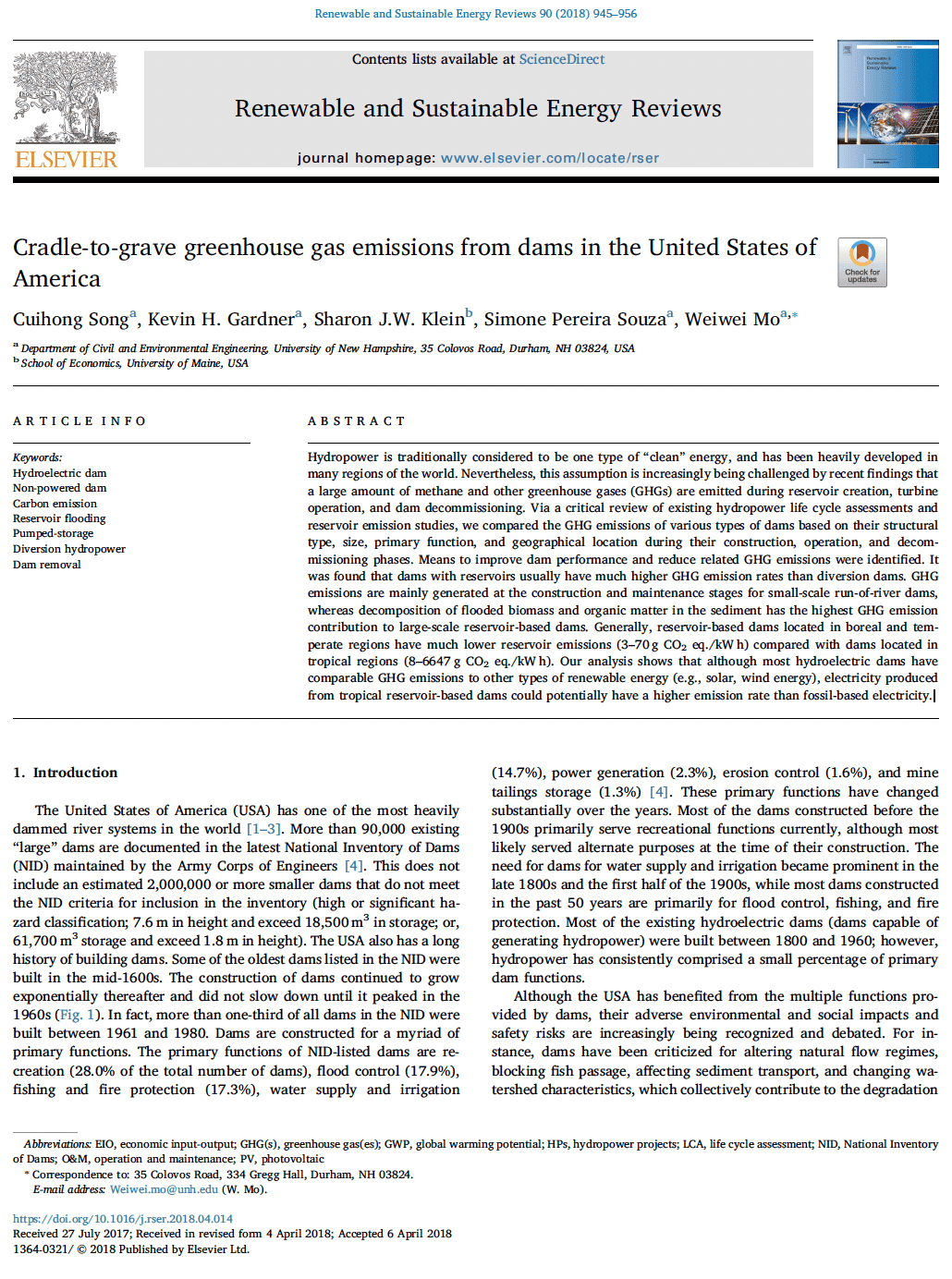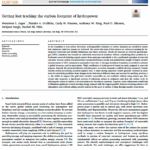Abstract: Hydropower is traditionally considered to be one type of “clean” energy, and has been heavily developed in many regions of the world. Nevertheless, this assumption is increasingly being challenged by recent findings that a large amount of methane and other greenhouse gases (GHGs) are emitted during reservoir creation, turbine operation, and dam decommissioning. Via a critical review of existing hydropower life cycle assessments and reservoir emission studies, we compared the GHG emissions of various types of dams based on their structural type, size, primary function, and geographical location during their construction, operation, and decommissioning phases. Means to improve dam performance and reduce related GHG emissions were identified. It was found that dams with reservoirs usually have much higher GHG emission rates than diversion dams. GHG emissions are mainly generated at the construction and maintenance stages for small-scale run-of-river dams, whereas decomposition of flooded biomass and organic matter in the sediment has the highest GHG emission contribution to large-scale reservoir-based dams. Generally, reservoir-based dams located in boreal and temperate regions have much lower reservoir emissions (3–70 g CO2 eq./kW h) compared with dams located in tropical regions (8–6647 g CO2 eq./kW h). Our analysis shows that although most hydroelectric dams have comparable GHG emissions to other types of renewable energy (e.g., solar, wind energy), electricity produced from tropical reservoir-based dams could potentially have a higher emission rate than fossil-based electricity.
Authors: Cuihong Songa, Kevin H. Gardnera, Sharon J.W. Kleinb, Simone Pereira Souzaa, Weiwei Moa
Graphical abstract:



